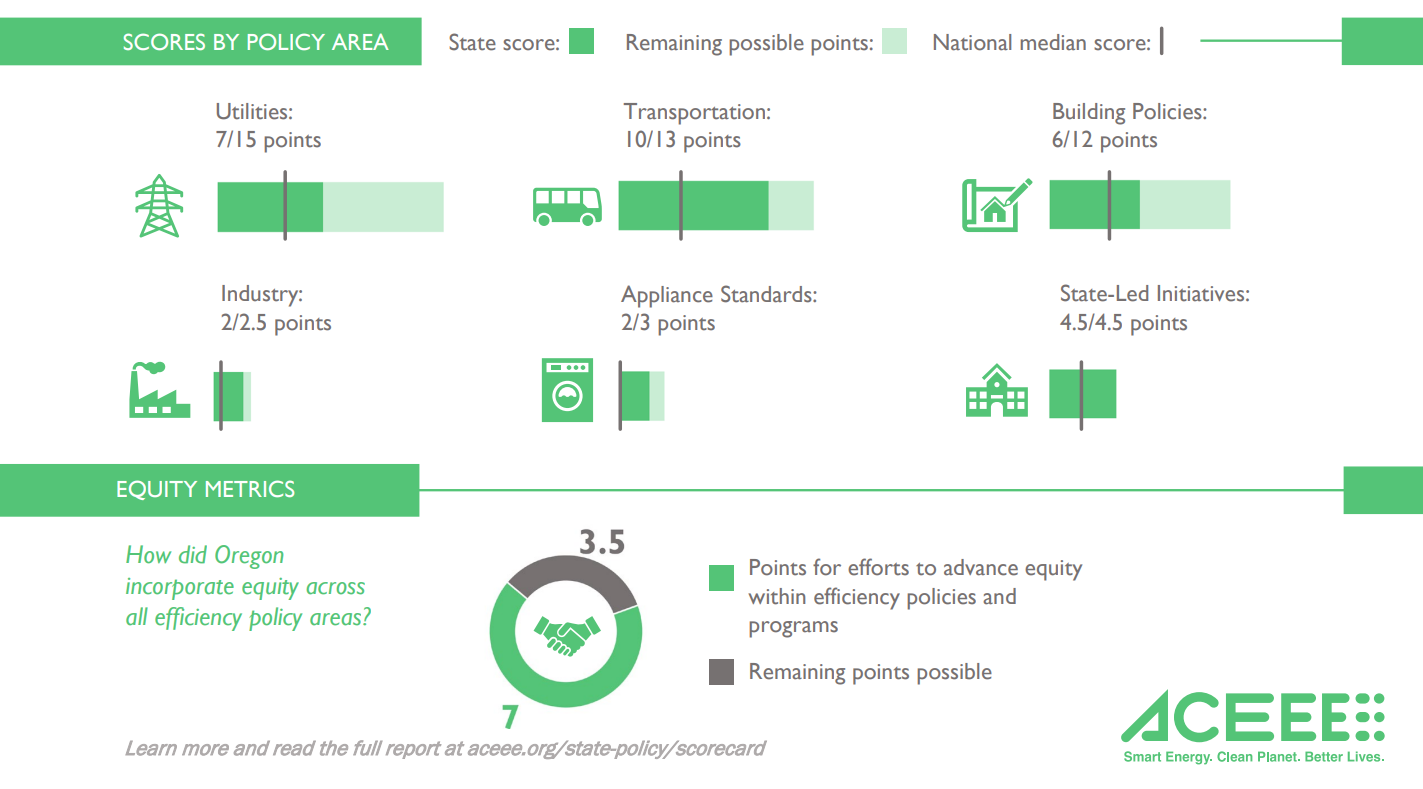Oregon “Remains a National Leader in Energy Efficiency” According to National State Scorecard
Oregon has once again earned high marks for energy efficiency efforts, according to the American Council for an Energy-Efficient Economy. ACEEE’s 2022 State Energy Scorecard ranks Oregon tied at No. 11.
Each year, the ACEEE releases its State Energy Efficiency Scorecard, which measures states based on utility programs and policies, transportation policies, building energy codes, state government-led initiatives, and appliance and equipment standards. Fellow west coast state California earned the top spot among the rankings, while Washington tied with Oregon at No. 11.
The scorecard awarded full points (4.5 out of 4.5) to Oregon for state-led initiatives, including programs that support energy efficiency in homes and businesses. The report also highlighted Oregon’s commitment to prioritizing energy efficient transportation policies, including programs and policies that bolster adoption of zero-emission vehicles. Oregon also earned points for adopting energy efficiency standards for 11 products, including irrigation sprinkler requirements that are expected to save over 100 billion gallons of water by 2040.
ACEEE considered equity metrics when ranking U.S. states, awarding Oregon 7 points out of a possible 10.5 for advancing equity within efficiency policies and programs. Noted the report, “[T]he state has passed a suite of bills aimed at addressing equity issues and alleviating customer energy burdens.”
While the scorecard shows that Oregon continues to be a national leader in energy efficiency, the 2022 report marks the first time since the scorecard launched in 2006 that Oregon has landed outside the top 10 states – in part due to other states making significant improvements from past years (for example, Maine moved up 11 spots to No. 5!).
As Oregon moves toward a clean energy future, the state will need to support clean, renewable energy at the same time it bolsters energy efficiency improvements. Increasing energy efficiency can mean lower energy costs and fewer new energy facilities to support demand. In fact, energy efficiency is the second-largest electricity resource after hydropower in the state.
The Oregon Department of Energy’s 2022 Biennial Energy Report features a policy brief on Charting a Course for Oregon’s Energy Future, which explores the pathways available for the state to achieve its clean energy and climate change policy objectives. Four common strategies outlined include energy efficiency, electrification of end-uses, clean electricity supply, and low-carbon fuels. The report also features briefs on Energy Efficiency Policy Opportunities in Existing Buildings and on the Co-Benefits of Energy Efficiency.

